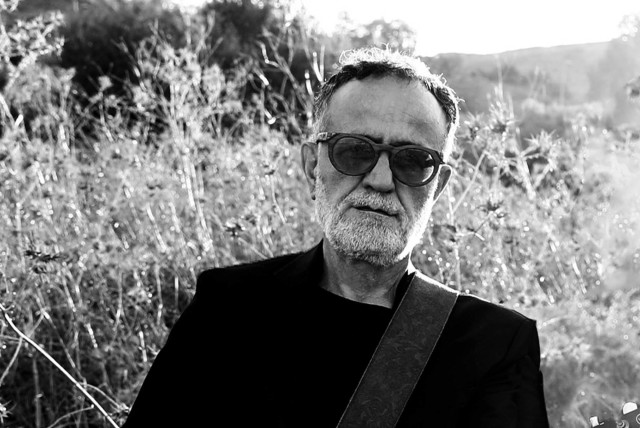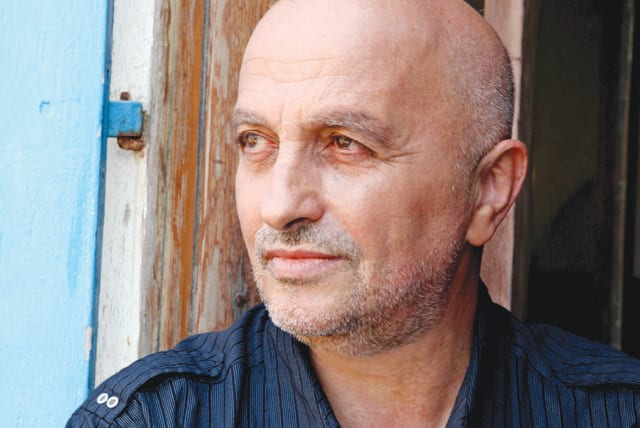Shem-Tov Levi is one of our most venerated purveyors of pop, folk, and ethnically-leaning music. At the age of 73, and with over half a century of writing and performing songs that have become staples of the Great Israeli Songbook, Levi is well-equipped to take on a broad range of projects.
His slot in the forthcoming Oud Days Festival, which takes place at venues around the capital under the auspices of Jerusalem’s Confederation House, December 27-30, draws on the writings of 18th century Italian rabbi, kabbalist, philosopher, and poet Moshe Haim Luzzatto – aka the Ramchal. Levi brings the curtain down on the four day event, at the Yellow Submarine on December 30 (doors open 8:30 p.m., show starts 9 p.m.), closing out a program which takes in a diverse spread of styles and genres. In addition to the base Middle Eastern fare, Confederation House CEO and artistic director Effie Benaya has lined up singer-songwriter slots, as well as rap, hip-hop, Turkish, and Sufi sounds.
Since Levi first began writing for, and working with, the country’s preeminent pop-rock-folk singer Arik Einstein in the early 1970s, he has charted a meandering course along all sorts of stylistic tracks crafting solo work that feeds off mellifluous lyrical material, as well as exploring ethnic avenues of various ilks.
The Kabbalistic angle of the upcoming Oud Days performance
The Man from Padova show, which references Luzzatto’s place of birth in Italy, has Levi fronting his long-serving quintet, with Eyal Heller on guitar, Noam Chen on percussion, double bassist Tzur Ben Zeev, and acclaimed oud player-vocalist Charlie Sabbach. In fact the gig is something of a reprise of a previous Ramchal musical outing Levi staged at the Jerusalem International Oud Festival some years ago.
While Levi says he is not about to immerse himself in the musings of yesteryear Jewish thinkers per se, he does admit he has taken some of Luzzatto’s ideas on board and ruminated on them long and hard. He “blames” venerated liturgical singer and spiritual leader Rabbi David Menachem for the cerebral supplement to his life. “He gave me a book by the Ramchal called Mesilat Yesharim (The Path of the Upright). I read it and reread several times. It is a wonderful book, not at all religious. It is more philosophy. The Ramchal was a genius.”

While we speak Levi produces the slim tome he received from Menachem and enlightens me with some slivers of the philosopher-poet’s wisdom. One talks about the benefits of putting in an honest day’s work. In translation the refrain reads something along the lines of: “A townsman who marries a princess will not satiate her wishes. So have fun and fill your soul, unhurriedly and pleasantly. And go to work, go to work.”
Levi says he got a lot out of the book and feels there is an underlying message that provides some useful pointers for our life’s journey. “He writes at the beginning that the reader shouldn’t expect to learn anything new, but that they should definitely note things they may have missed or recall things they once knew and may have forgotten. He says the reader should go back and reread the book, so the messages stick in their mind so they can apply them in their lives.”
That sounds like a practical and definitively user-friendly tack. It appealed to Levi and helped him along his creative way as he gave some of the Ramchal’s thoughts melodic life. “Sometimes you read something and you feel you don’t get it fully. But the Ramchal wrote in a way that you get the impression that you really understand what he means, you really grasp the depth of his wisdom.”
By all accounts the kabbalist-poet was a larger than life character who followed his own singular path in life, and was not about to pander to accepted wisdom and socially acceptable mores. “He was a controversial person,” Levi notes. “He was ostracized by his community and others.”
Three centuries on, Luzzatto’s observations on life ring true for Levi, Menachem, and, no doubt, plenty more. “He was shunned by the rabbinical establishment of the day,” says Levi, “But he is now studied at yeshivot.” Quite a comeback.
I get more insight into the Ramchal’s thoughts on life and how we should conduct ourselves. Levi cites from a poem called Shachat Shel Ge’ava (Pit of Pride). “All the good things in life, if you think you embody them, you are in immediate peril of falling, into the pit, of pride.” That sounds like a solid tenet to contemplate and apply.
Levi is not new to the poetry-music making business. “I have scored material by poets for many years now. Poets have a special way of saying a lot in only a few words.” That helps the sonic creative pursuit along the desired direction, although it does not necessarily make the composer’s life any easier. “I didn’t just spit the music out,” Levi notes. “I read the texts several times. When I write music for a text I let the words guide me.”
The Ramchal’s 300 year old sentiments, indeed, led the compositional way and spawned a broad palette of melodic styles which found their way into The Man from Padova, and helped Levi to convey some of his own reflections on the 18th century thinker’s work. “In Benachat Ruach, Charlie [Sabbach] and I recite some of the words, over an instrumental backdrop.” Levi says he aimed to impart something of the ambiance of Luzzatto’s times and the spirit of the Italian community. “Charlie and I recite the words, but not always exactly together. It is similar to the way people converse in a synagogue, or like worshippers recite prayers. It is not polished and strictly tied down to a beat.”
That mundane, free-flowing ethos yielded a slew of styles, which Levi says wend their way through Israeli folk, bluesy material and even Bachesque classical domains. “These are special texts. I don’t know how many people are familiar with them. I have really enjoyed this project and it’s wonderful to come back to it.”
Perhaps the December 30 show will generate interest in the Ramchal’s work, and may even help us find our way safely through these current choppy waters.
For tickets and more information about Oud Days: *6226, http://tickets.bimot.co.il, http://www.confederationhouse.org and (02) 539-9360 ext. 5






































































































